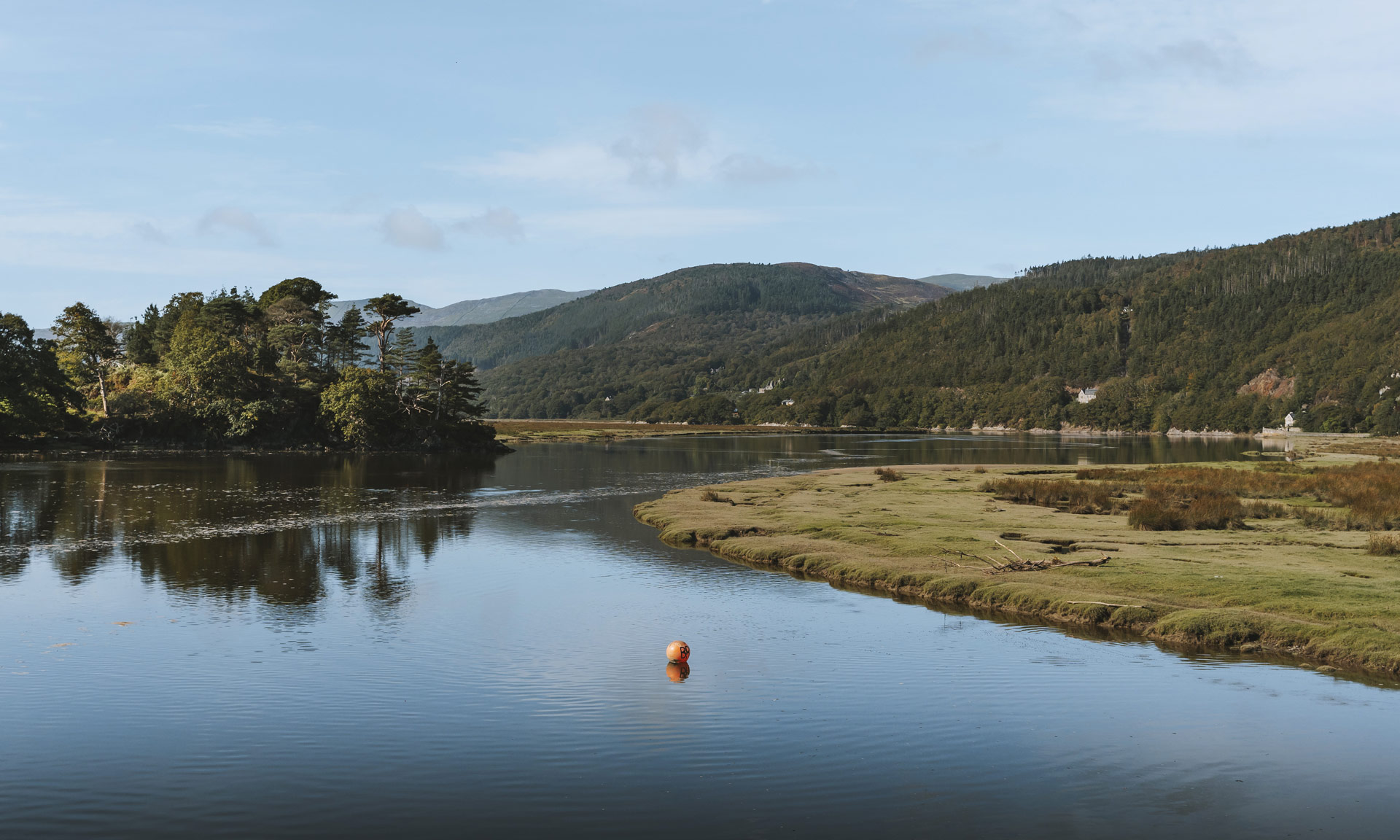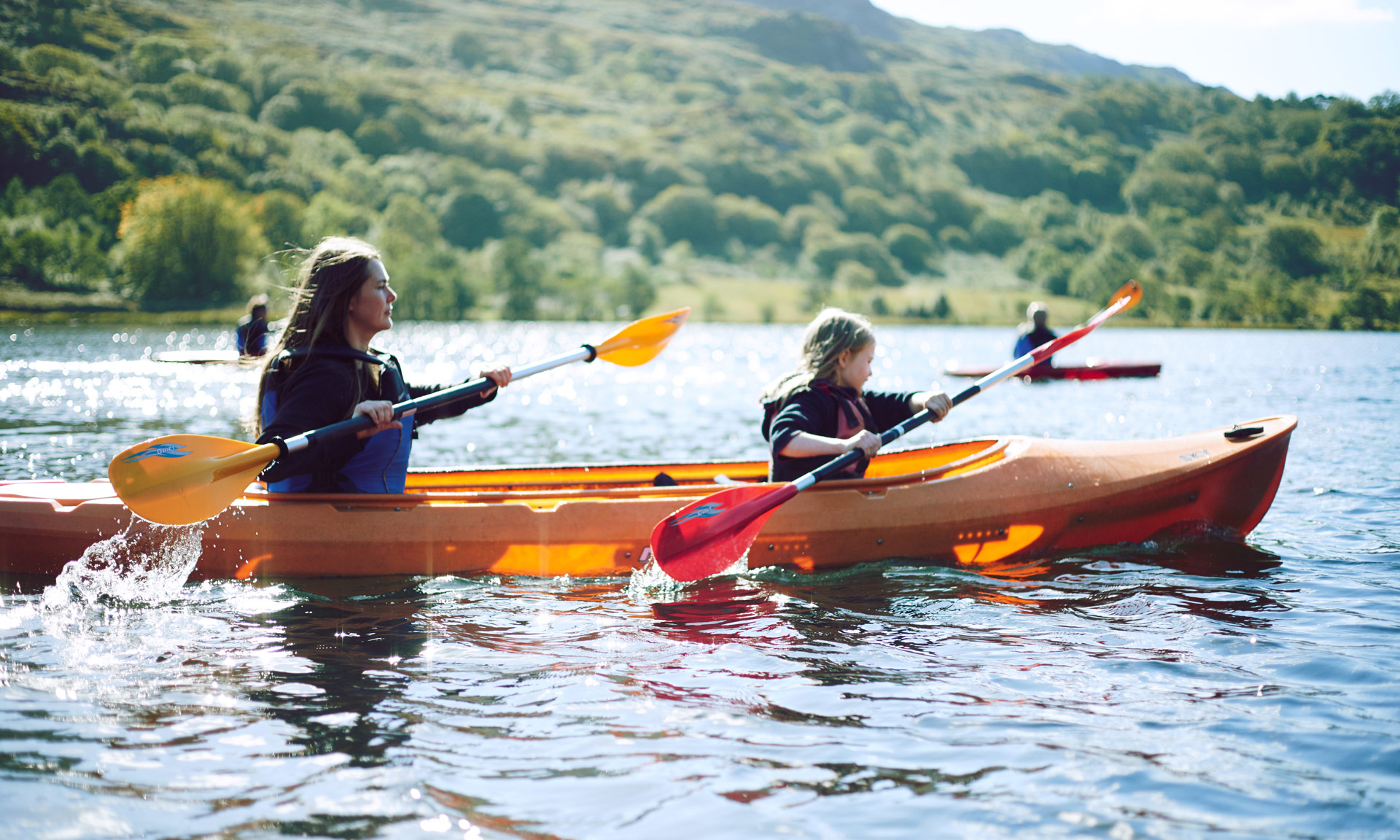Some of the following places also offer water sports equipment for hire.
In recent years, wild swimming has become an extremely popular activity that can make a big difference to physical and mental well-being. Activities such as paddleboarding have also become popular on lakes and in coastal areas. Eryri offers a wealth of opportunities for wild swimming and water sports.
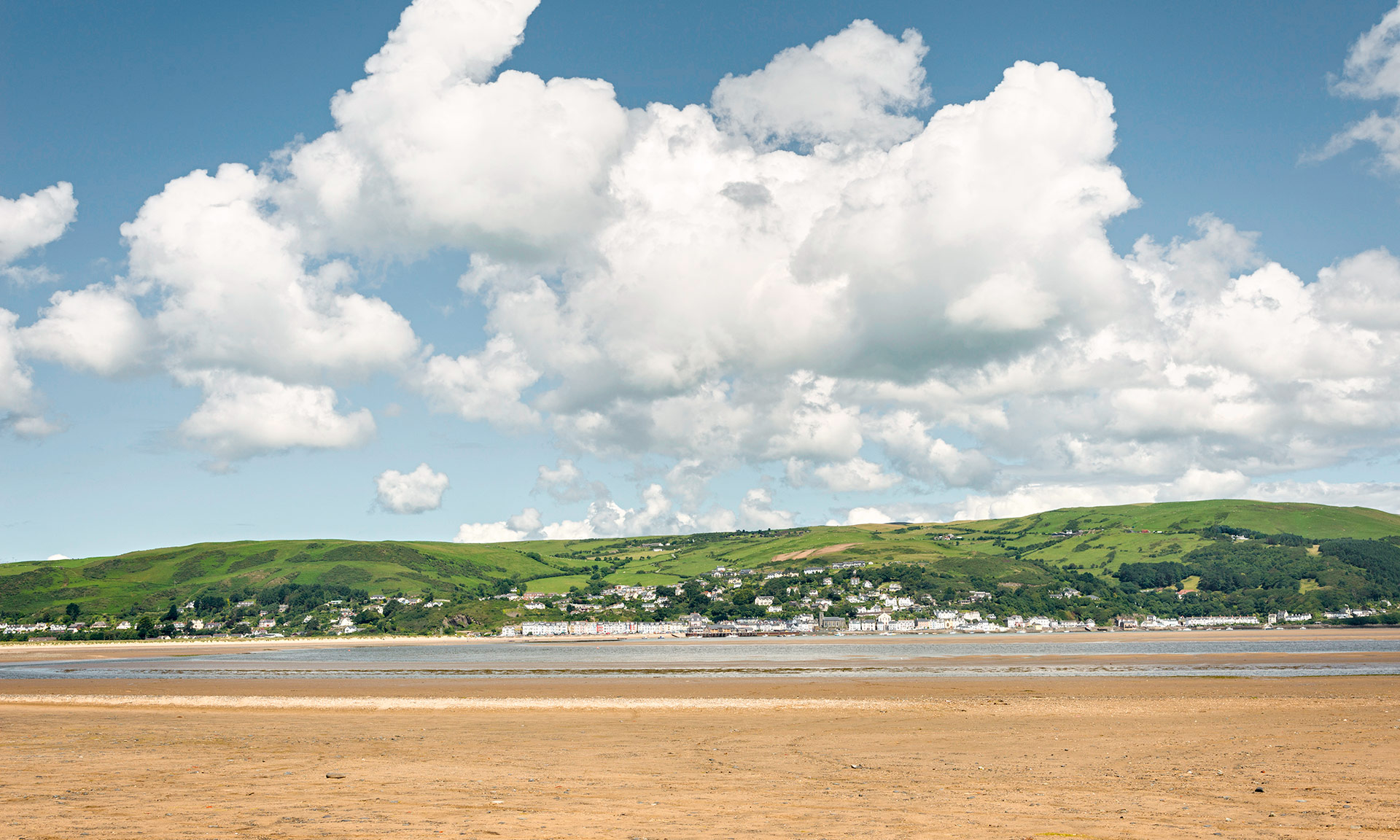
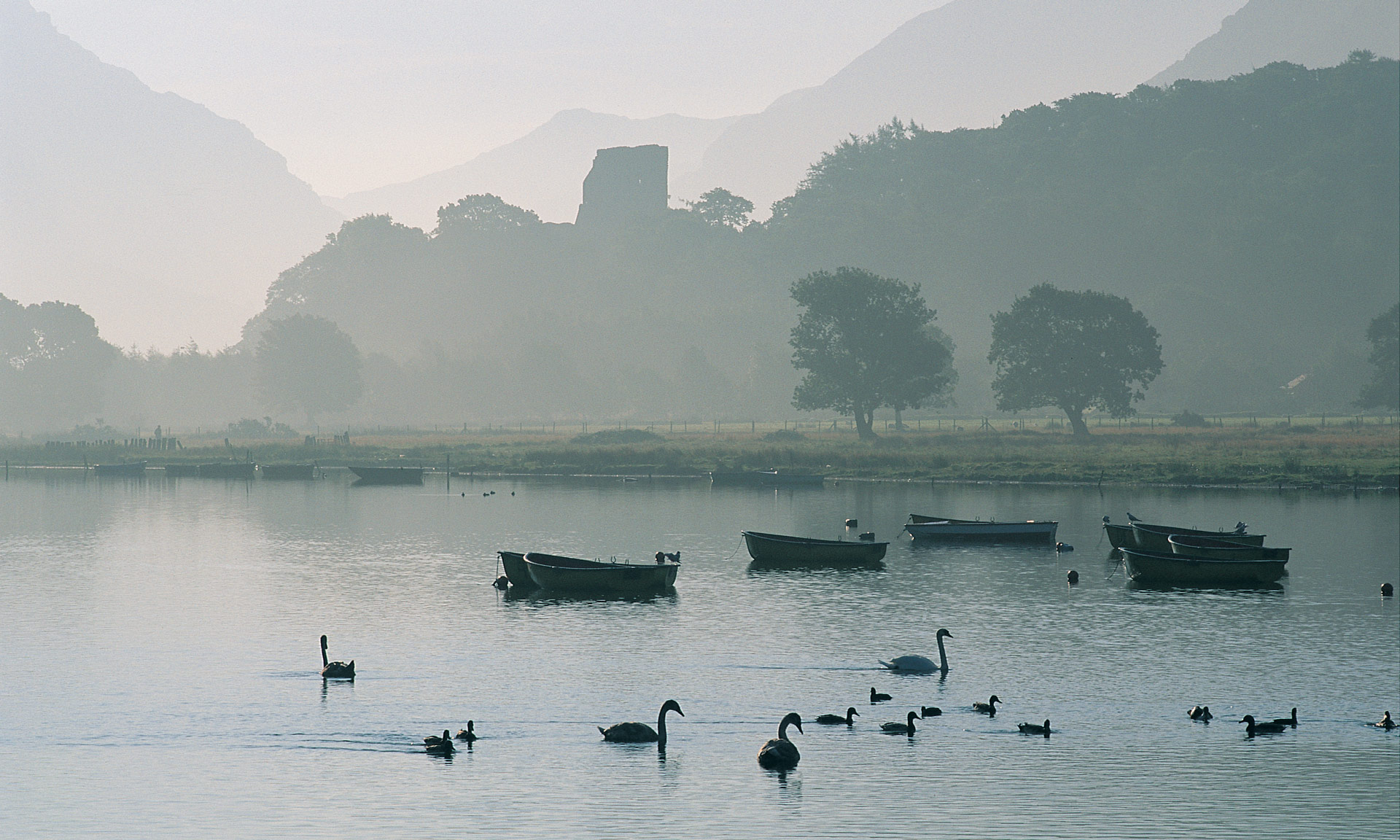
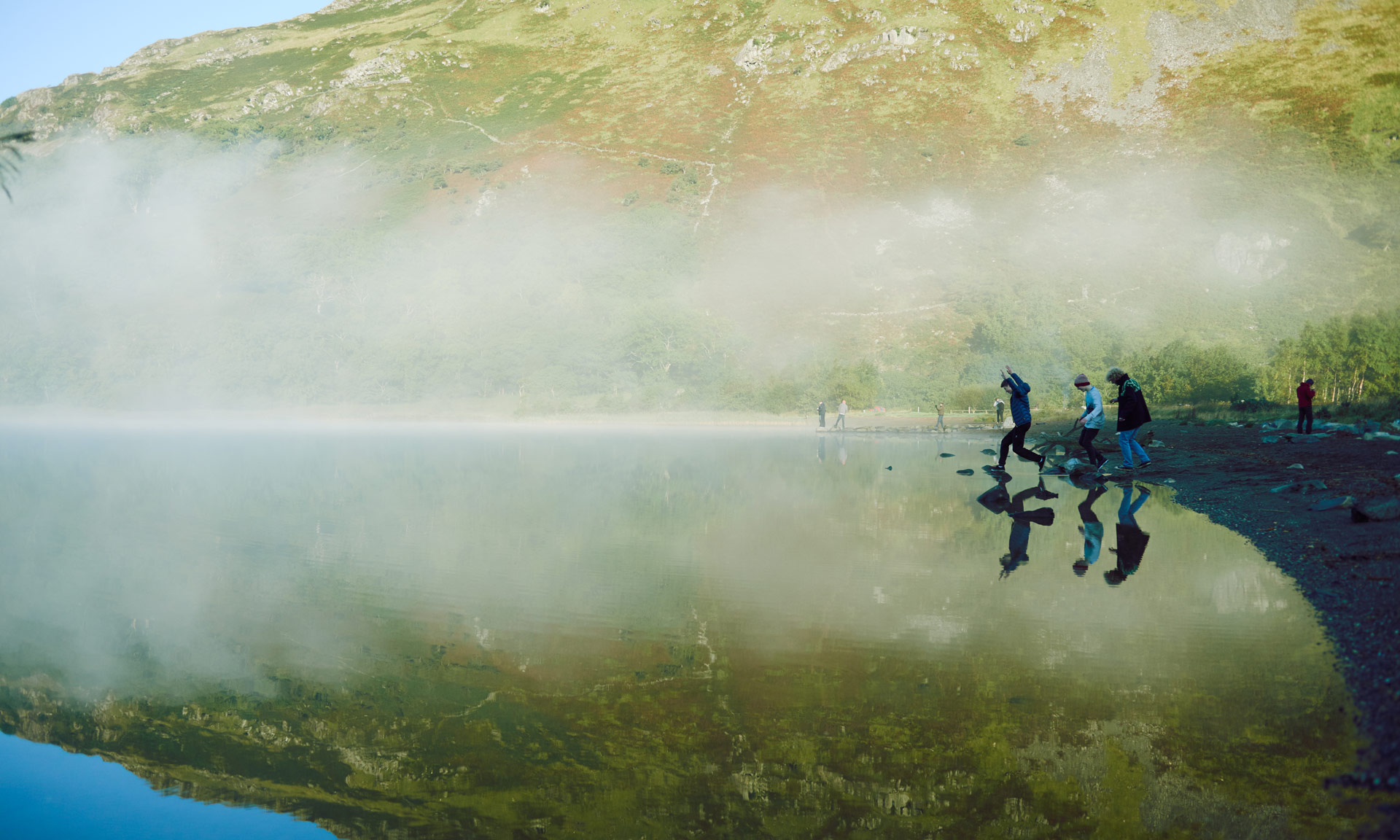
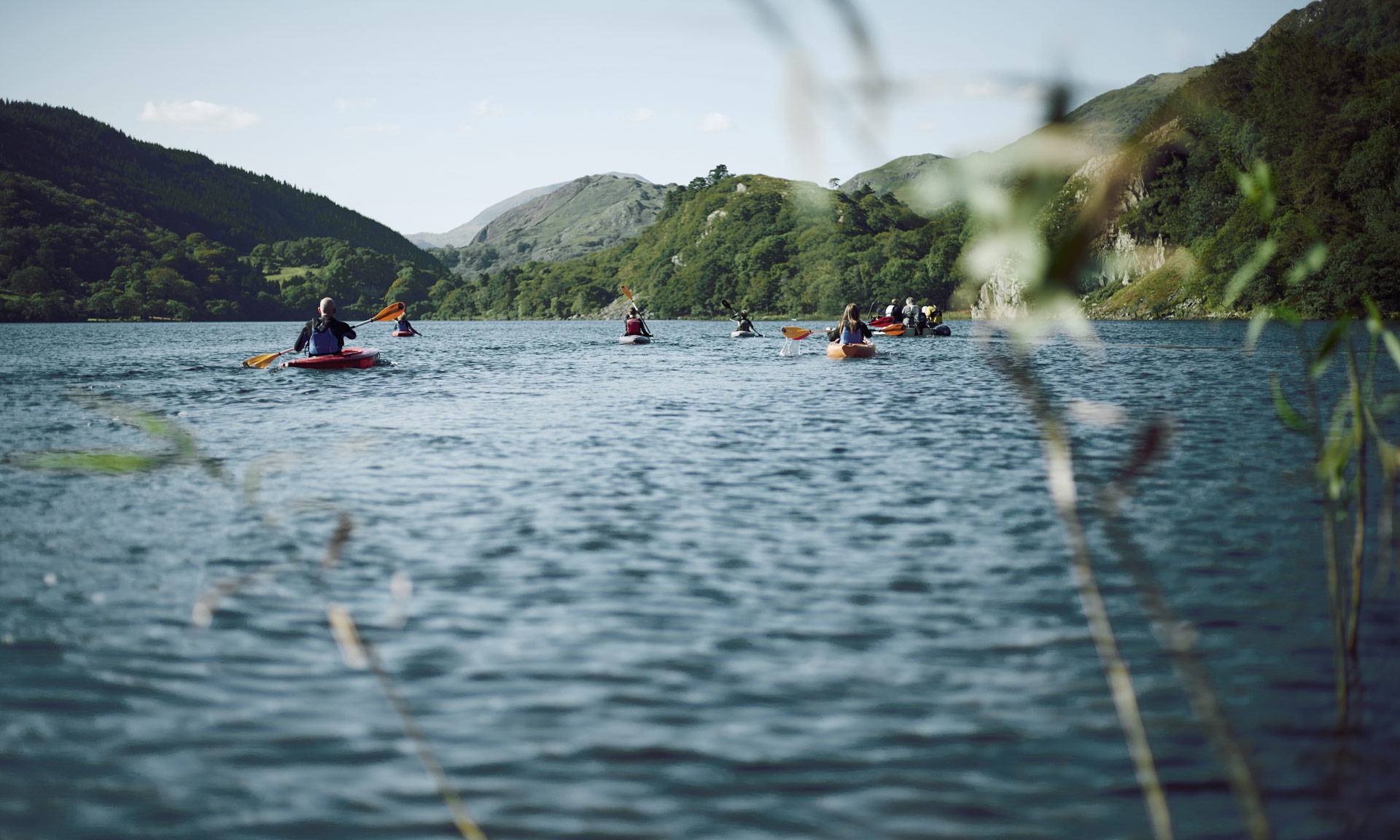
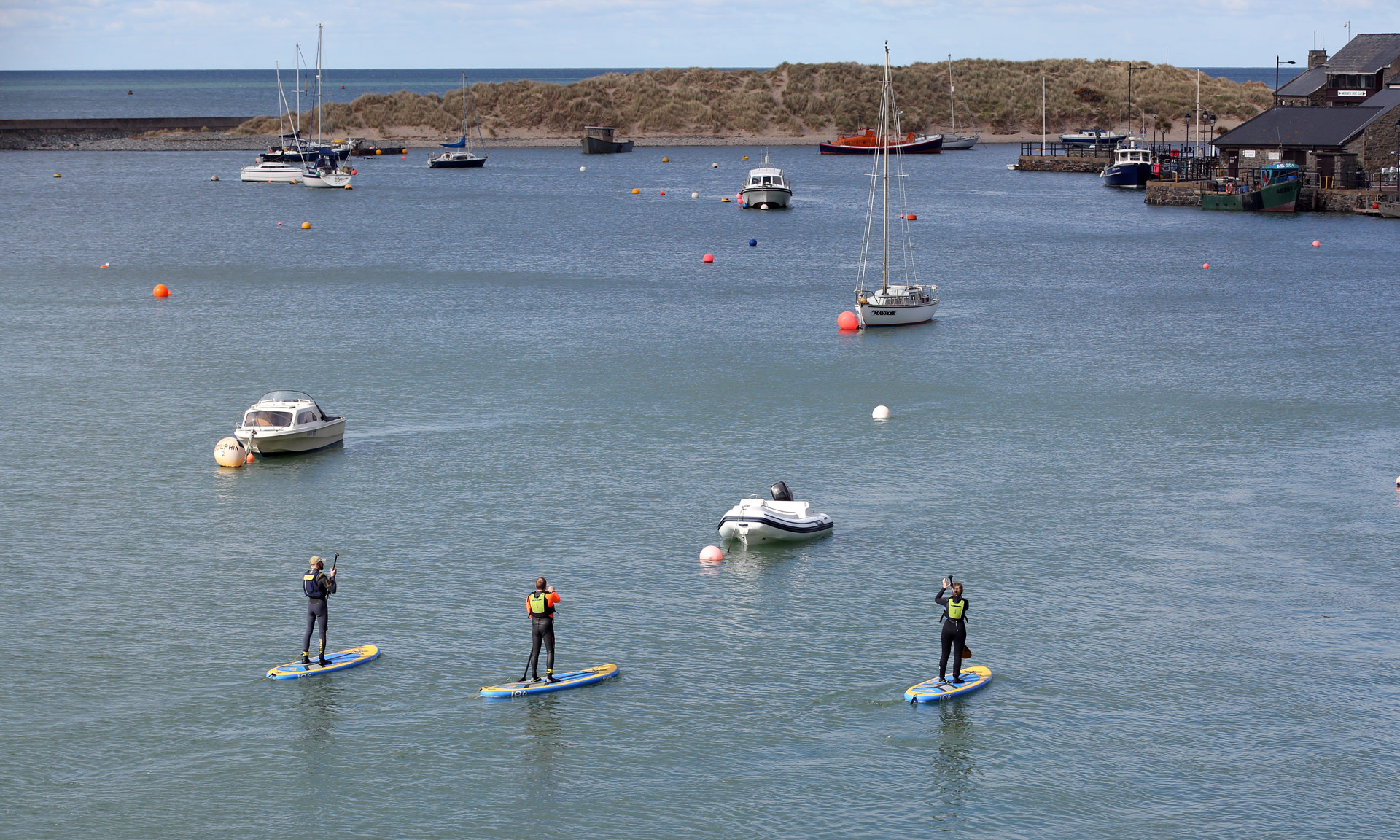
No, you can’t swim in all lakes or rivers in Eryri. Many of the National Park’s lakes and rivers are located on private land. You cannot swim in these lakes without the landowner’s permission.
In addition, some lakes and rivers are drinking water reservoirs, and swimming is not permitted in these lakes.
Other lakes, such as Llyn Idwal in Cwm Idwal, are located in nature reserves. You should not take part in water sports or swim in these lakes.
When inland, you should call 999 immediately and ask for the police and the Mountain Rescue service.
If you are on a beach, you should call 999 and ask for the police and the Coastguard.
